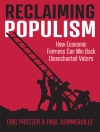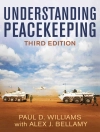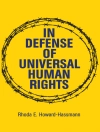Who controls what is taught in American universities – professors or politicians?
The answer is far from clear but suddenly urgent. Unprecedented efforts are now underway to restrict what ideas can be promoted and discussed in university classrooms. Professors at public universities have long assumed that their freedom to teach is unassailable and that there were firm constitutional protections shielding them from political interventions. Those assumptions might always have been more hopeful than sound. A battle over the control of the university classroom is now brewing, and the courts will be called upon to establish clearer guidelines as to what – if any – limits legislatures might have in dictating what is taught in public universities.
In this path-breaking book, Keith Whittington argues that the First Amendment imposes meaningful limits on how government officials can restrict the ideas discussed on university campuses. In clear and accessible prose, he illuminates the legal status of academic freedom in the United States and shows how existing constitutional doctrine can be deployed to protect unbridled free inquiry.
Tabela de Conteúdo
Preface
1. The Culture War and the Universities
2. Academic Freedom in the United States
3. The Era of the Loyalty Oaths
4. The First Amendment Comes to Campus
5. The Professor as a Government Employee
6. Teaching in the Government School
7. Compelling Students to Believe
Conclusion
Further Reading
Acknowledgements
Notes
Index
Sobre o autor
Keith E. Whittington is the David Boies Professor of Law at Yale Law School and a leading expert on academic freedom and American constitutional law and politics. Among his prize-winning books is Speak Freely: Why Universities Must Defend Free Speech. He is the founding chair of the Academic Freedom Alliance and a visiting fellow at the Hoover Institution.












